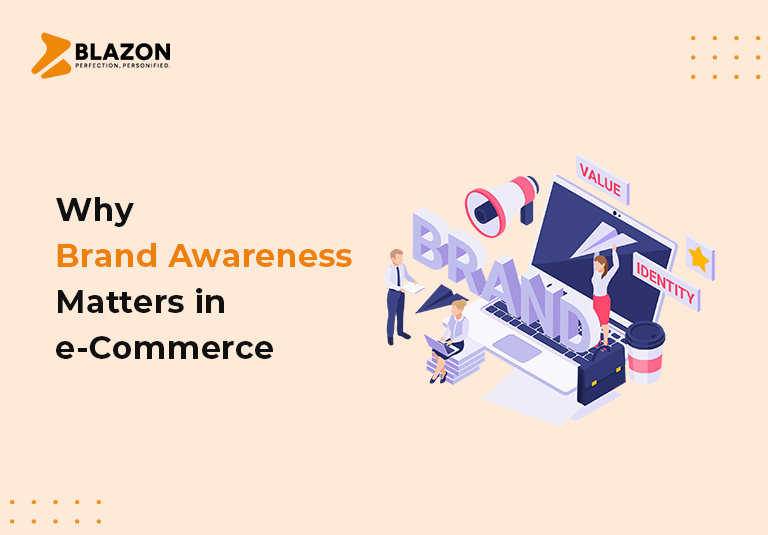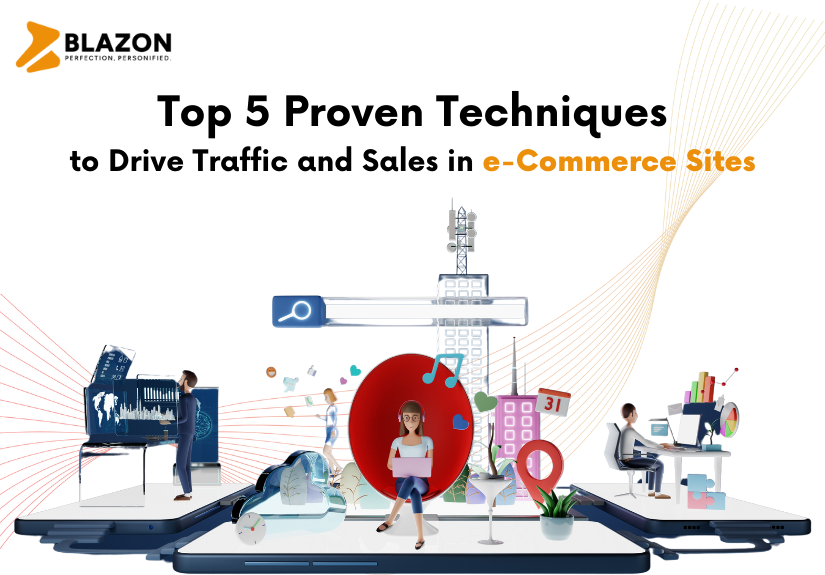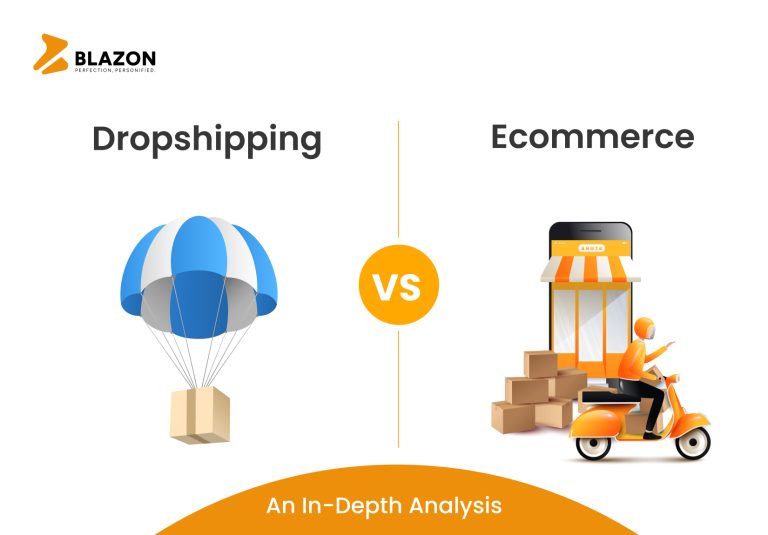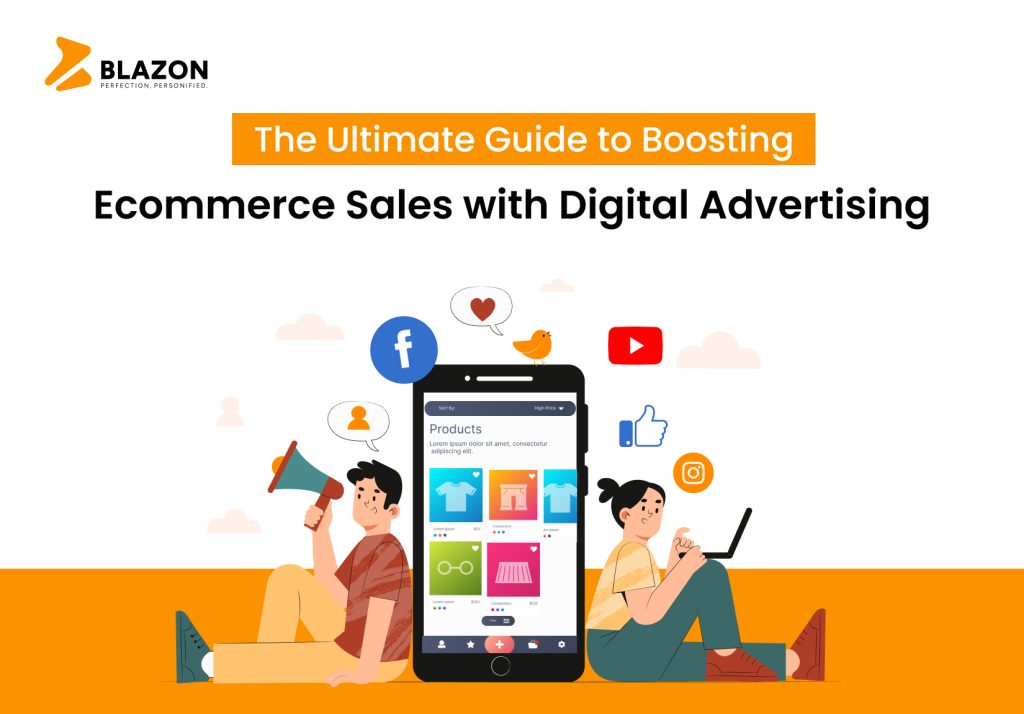In the digital age, brand awareness is paramount for e-commerce businesses. It distinguishes your brand from the competition, builds customer trust, and drives long-term success. This comprehensive guide explores why brand awareness matters in e-commerce, delves into famous brand case studies, shares effective strategies, and outlines the journey to create a strong brand identity.
The Importance of Brand Awareness in e-Commerce
Brand awareness refers to the extent to which consumers are aware of and recognise your brand. In e-commerce, where the marketplace is crowded with countless competitors, brand awareness can be the difference between success and obscurity.

1. Building Trust and Credibility
A strong brand instills confidence in consumers. When shoppers recognize your brand, they are more likely to trust your products and services. Trust is crucial for converting visitors into customers and fostering loyalty.
2. Differentiation
In a saturated market, standing out is essential. Brand awareness differentiates your business from competitors. A unique and memorable brand identity attracts customers and sets you apart.
3. Customer Loyalty
Brand awareness fosters customer loyalty. When consumers have positive associations with your brand, they are more likely to return for repeat purchases and recommend your brand to others.
4. Enhanced Marketing Efforts
Recognizable brands benefit more from marketing campaigns. When customers are already aware of your brand, marketing efforts yield higher engagement and conversion rates.
Famous Brand Case Studies
Amazon
Amazon’s journey to becoming an e-commerce giant highlights the power of brand awareness. Initially an online bookstore, Amazon diversified its product range, consistently prioritized customer satisfaction, and heavily invested in marketing. The result is a brand synonymous with convenience, reliability, and vast selection.

Key Strategies
- Customer-centric approach
- Extensive product range
- Strong marketing campaigns
- Prime membership program
Apple
Apple’s brand awareness strategy revolves around innovation and quality. From its iconic logo to its sleek product design, Apple has created a brand identity that emphasizes premium quality and cutting-edge technology.

Key Strategies
- Consistent branding across all products
- Focus on innovation and quality
- Memorable marketing campaigns
- Strong customer loyalty programs
Nike
Nike’s brand awareness is built on inspirational marketing and a strong brand message. The “Just Do It” slogan and endorsements from top athletes have made Nike a globally recognized brand.

Key Strategies
- Inspirational and motivational branding
- High-profile endorsements
- Consistent brand messaging
- Engaging storytelling
Strategies to Boost Brand Awareness in e-Commerce
Develop a Strong Brand Identity
Your logo, color scheme, typography, and overall visual style all contribute to your brand identity. Ensure that your brand identity reflects your business values and appeals to your target audience.
Steps
- Design a memorable logo
- Choose a consistent color palette
- Develop a unique brand voice
- Create a style guide for consistency
Leverage Social Media
Social media platforms are powerful tools for increasing brand awareness. Reach a wider audience by interacting with them, sharing insightful information, and utilizing social media advertising.
Strategies
- Regularly post engaging content
- Use hashtags to increase visibility
- Collaborate with influencers
- Run targeted ad campaigns
Content Marketing
Creating valuable content establishes your brand as an authority in your industry. Blog posts, videos, infographics, and e-books can attract and engage potential customers.
Strategies
- Start a blog and post regularly
- Create video tutorials and product demonstrations
- Share infographics with valuable information
- Offer downloadable e-books and guides
Email Marketing
Email marketing keeps your brand top-of-mind for your customers. Send newsletters, promotional offers, and personalized recommendations to engage with your audience.
Strategies
- Build a robust email list
- Send regular newsletters with valuable content
- Personalize emails based on customer behavior
- Use compelling subject lines to increase open rates
Influencer Partnerships
Partnering with influencers can introduce your brand to a larger audience. Select influencers whose followers align with your target market.
Strategies
- Identify relevant influencers in your niche
- Collaborate on product reviews and promotions
- Offer exclusive discounts to the influencer’s followers
- Track the performance of influencer campaigns
Paid Advertising
Investing in paid advertising can significantly boost brand awareness. Platforms like Google Ads, Facebook Ads, and Instagram Ads allow you to target specific demographics.
Strategies
- Use Google Ads to appear in search results
- Create visually appealing Facebook and Instagram ads
- Retarget visitors who have previously visited your site
- Monitor and optimize ad performance
Public Relations
Positive media coverage can enhance your brand’s credibility and reach. Engage with journalists, send out press releases, and seek opportunities for interviews and features.
Strategies
- Build relationships with journalists and bloggers
- Send out press releases for significant milestones
- Seek out speaking engagements and interviews
- Monitor media coverage and engage with the audience
The Journey to Creating a Strong Brand
Creating a strong brand is a journey that requires careful planning, consistent effort, and continuous improvement. Here’s a step-by-step guide to help you build a powerful brand for your e-commerce business.

Step 1: Define Your Brand Purpose and Values
Start by defining what your brand stands for. What are your core values? What is your mission? Understanding your brand’s purpose will guide all your branding efforts.
Step 2: Conduct Market Research
Research your target audience and competitors. Understand what your audience values and how your competitors position themselves. This information will help you identify your unique selling proposition (USP).
Step 3: Develop Your Brand Identity
Create a visual and verbal identity that reflects your brand’s values and appeals to your target audience. This includes your logo, color palette, typography, and brand voice.
Step 4: Build Your Online Presence
Create a professional website that showcases your brand identity. Make sure your website is optimised for search engines, mobile-responsive, and easy to use. Create social media accounts that are consistent with your business.
Step 5: Create a Content Strategy
Develop a content strategy that provides value to your audience and promotes your brand. This includes blog posts, videos, social media content, and email campaigns.
Step 6: Engage with Your Audience
Be active on social media, interact with your followers, reply to messages and comments, and create a brand community. Customer interaction is crucial for building brand loyalty.
Step 7: Monitor and Improve
Regularly monitor your brand’s performance using analytics tools. Track metrics such as website traffic, social media engagement, and sales. Use this data to refine your strategies and improve your brand’s performance.
Conclusion
Brand awareness is a crucial component of e-commerce success. It builds trust, differentiates your business, fosters customer loyalty, and enhances your marketing efforts. By studying successful brands like Amazon, Apple, and Nike, and implementing effective strategies such as developing a strong brand identity, leveraging social media, and engaging in content marketing, you can create a powerful brand presence.
Embark on the journey of building your brand with a clear purpose, consistent efforts, and continuous improvement. As you establish and grow your brand, remember that the key to success lies in staying true to your values and connecting with your audience. With the right strategies, your e-commerce business can achieve significant brand awareness and thrive in the competitive online market.












